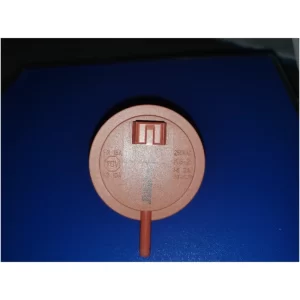Washing machines are essential household appliances, making laundry tasks easier and more efficient. One important feature to understand is washer water levels. In this guide, we will explore how water levels in washing machines work, why they matter, and how to optimize them for both effective cleaning and resource conservation. Whether you have a top-load or front-load washing machine, understanding water level settings is key to a better laundry experience.
What is the Washer Water Level?
The water level in a washing machine refers to the amount of water used during each wash cycle. Depending on the size of the load, the type of cycle, and your washing machine’s design, the water level can vary. High-efficiency washers often use sensors to automatically adjust water levels, while older models might have manual controls.
Key Takeaways:
- Water level control is essential for cleaning efficiency.
- Automatic water level sensors save water and energy.
- Manual settings are found in older washing machines.
How Does Water Level Work in a Washing Machine?
Modern washing machines are equipped with water level sensors that adjust the amount of water used based on the size of the laundry load. Here’s how it works:
- Water Level Sensors: These sensors detect the load size and adjust the water level accordingly, preventing waste.
- Manual Control: Older models may require users to select a water level manually (e.g., small, medium, large).
- Agitation and Spin Cycles: The water level changes during different cycles (wash, rinse) to clean clothes and remove detergent efficiently.
Why is the Washer Water Level Important?
The correct water level is crucial for several reasons:
- Effective Cleaning: Adequate water helps dissolve detergent and ensures proper agitation to clean clothes thoroughly.
- Energy Efficiency: Using too much water means more energy to heat and pump the water, increasing electricity costs.
- Water Conservation: Correct water usage reduces waste and supports eco-friendly living.
- Machine Longevity: Overuse or underuse of water can damage your washing machine over time.
Factors That Affect Washer Water Level
Several factors influence the water level in your washing machine:
- Load Size: Larger loads need more water, while smaller loads need less.
- Wash Cycle Type: Different cycles (delicate, heavy-duty) require varying water levels.
- Machine Type: Top-load washers use more water than front-load washers due to design differences.
- Water Pressure: Low water pressure may affect the water-filling process, while high pressure could cause overfilling.
How to Optimize Washer Water Levels
To optimize water usage and improve washing efficiency:
- Match the Cycle to Your Laundry Load: Always select the correct cycle (heavy-duty, delicate) for your laundry, which will adjust the water level accordingly.
- Don’t Overload or Underload: Overloading can cause poor washing, while underloading wastes water.
- Upgrade to a High-Efficiency Washer: Consider investing in a high-efficiency washing machine for reduced water and energy consumption.
- Regular Maintenance: Check for leaks or malfunctions to avoid issues with water levels.
Understanding the washing machine water level switch is essential for achieving effective cleaning while conserving both water and energy. Whether you are using a front-load washer or a top-load washer, optimizing water levels ensures better laundry results and contributes to a sustainable, eco-friendly home. Select the right cycle, use the appropriate water level for your load, and invest in high-efficiency washing machines to make your laundry routine both efficient and environmentally friendly.
Key Takeaways for Optimizing Washer Water Levels:
- Always use the correct water level for your laundry load.
- Invest in a high-efficiency washer for better water and energy conservation.
- Regularly inspect your washing machine for any maintenance needs to ensure optimal performance.
For more information on machinery and to explore the latest in washing machine technology, visit Link-Machinery. As an international company, Link-Machinery provides all-around service to global customers, offering the best solutions for your machinery needs.


